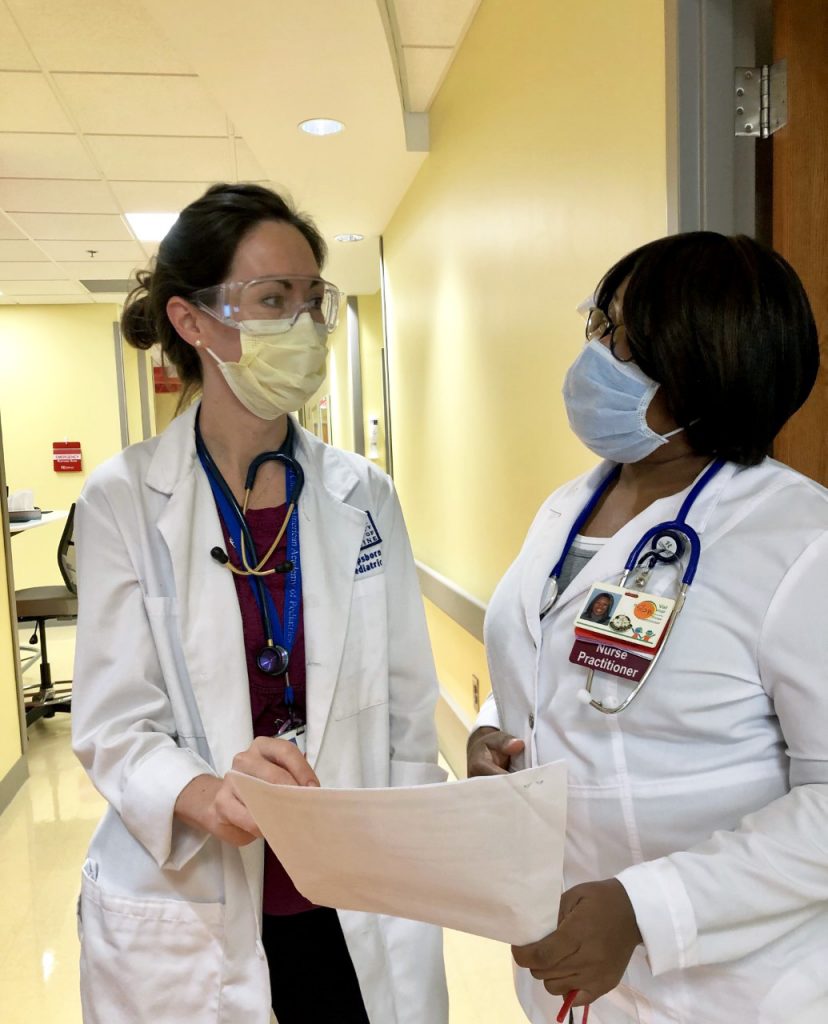May 2020 Champion!
Dr. Rebecca Philipsborn
Pediatrician

Dr. Rebecca Philipsborn (left) and NP Valerie Benjamin (right)
For some doctors, what they saw in their practices led them to activism against climate change. For Rebecca Pass Philipsborn, climate change led her to become a doctor.
Dr. Philipsborn treats patients at the safety net Hughes Spalding Primary Care Center at Children’s Healthcare of Atlanta, teaches as an assistant professor in the Emory University School of Medicine, and is a clinical consultant with Emory’s Global Health Institute.
Dr. Philipsborn says that even when she was an undergraduate English major (Princeton, class of 2002), public health was an interest of hers. She went on to get a master’s in public administration at Columbia in 2007, and her M.D. from Emory in 2013. She worked in health- and health finance-related jobs at locations from Washington to Harlem to Dakar, Senegal, and as an emergency medical technician in her home city, Birmingham, Alabama.
Dr. Philipsborn brought this global perspective to her work against the climate crisis. “The health of people and the planet are intertwined,” she says.
Dr. Philipsborn sees the effect of climate change in her practice in Atlanta. “Children are more likely to be brought in on extremely hot days, with issues that can range from asthma exacerbations to heat illness from preseason high school football training,” she says. “And medical students are pushing for more climate education, not just at Emory but at medical schools around the country,” she says.
She’s also one of the key founders of Georgia Clinicians for Climate Action (GCCA), one of the latest state-level affiliates of the Medical Society Consortium on Climate and Health. Dr. Philipsborn wants to be a voice for child health within GCCA, and is reaching out toward other medical groups in the state. As with med students, many doctors are ready to listen, she says: “Georgia physicians care about this issue for the health of our children.”
Climate and health have even greater urgency during the COVID-19 pandemic. Researchers at Harvard found that the same conditions that create the climate crisis, notably air pollution, are associated with higher COVID-19 death rates in the United States.
“We need to consider our coronavirus reality in the context of climate shocks, and climate-driven natural disasters this summer,” Dr. Philipsborn says. “For instance, wearing personal protective equipment outdoors can increase the risk of heat illness.”
“What if evacuations are necessary for fires or severe storms?” she says. “These are questions we need to be prepared for, to protect our patients.”
